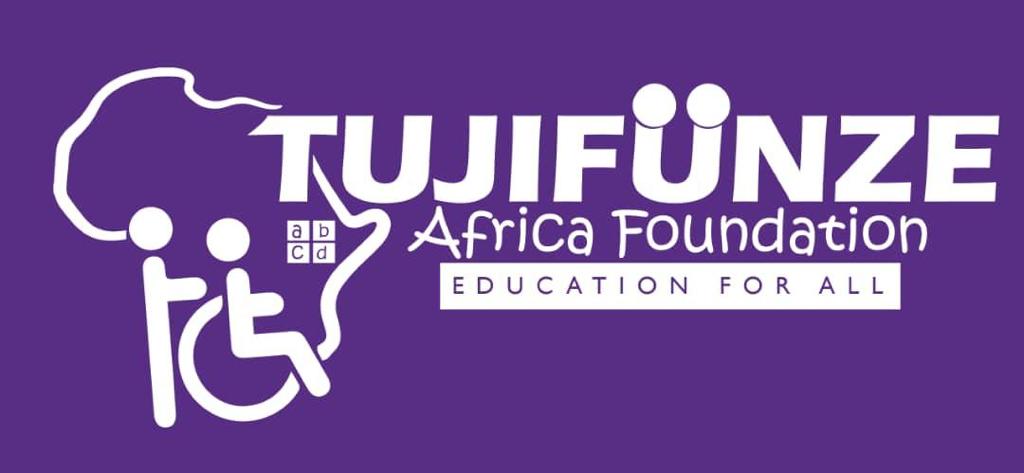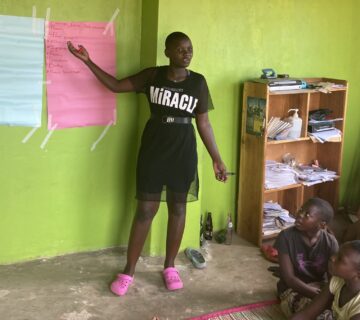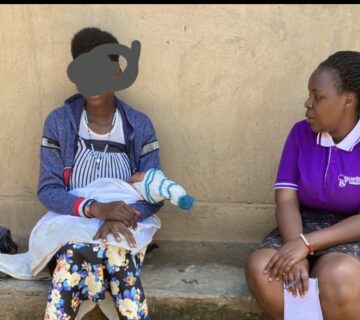The Government of Uganda has organized the 2nd Annual SDGs Conference scheduled for 22nd and 23rd of June 2023 to reflect on the mid-term progress made by Uganda in the integration and implementation of the SDGs and African Union Agenda 2063 in order to leverage synergies and articulate transformative pathways to advance the Sustainable Development Goals. The theme for the 2nd National SDG Conference is “ Promoting Inclusive National and Continental Actions for Accelerated Delivery on the SDGs and Agenda 2063.
The specific objectives of the conference are;
- To review the mid-term status of implementation of SDGs with a focus of Leaving No One Behind.
- To review the sub national and regional actions and commitments for integrated implementation of the SDGs and Agenda 2063.
- To share experiences, good practices and lessons learned in the efforts to implement the Agenda 2063 and Agenda 2030.
- To activate both traditional and new stakeholders’ SDG transformation actions in line with the recommendations made in the United Nations Secretary General’s Special Edition SDGs progress report to accelerate SDG implementation.
INTRODUCTION
Ahead of the 2nd Uganda Annual SDGs Conference, Tujifunze Africa Foundation alongside the UNESCO SDG4 Youth and Students Network and the Youth Coalition for SDGs convened a side event titled ‘Harnessing the power of youth to advance SDG4 in Uganda.” that took place on 19th June 2023 at 2:00pm – 3:30pm.
The session built on the Youth Declaration for Transforming Education and the Global Youth Initiative that was launched on International Education Day on 24th January 2023 to strengthen meaningful youth engagement in the transformation of education. The session showcased best practices by youth in Uganda to advance SDG4 and gave a platform for youth to collectively brainstorm ways on how youth engagement in education policy making and implementation in Uganda can be enhanced to realize SDG4.
This session led by youth advocates, provided a great opportunity for stakeholders; youth, government, academia, agencies, that are taking positive actions towards achieving SDG4 at the grassroots and national level, to learn from one another and re-imagine meaningful youth engagement in transforming education in Uganda.
WELCOME REMARKS;
Ms Nakaibale Lynda Eunice, the Founder Tujifunze Africa Foundation started the session with opening remarks and welcomed participants to the session, thanking them for making time to join the session to share learn, share best practices and brainstorm ways to strengthen youth engagement and leadership in education policy making. Furthermore, Ms Lynda proceeded to give an overview of the session, highlighting the tremendous role youth play in achieving the Sustainable Development Goals and why it matters that they are engaged in the decision making processes. Furthermore, ms Lynda thanked the conveners Tujifunze Africa Foundation and co-conveners; UNESCO SDG4 Youth and Students Network as well as the SDGs secretariat in Uganda for prioritizing the youth agenda and giving youth an opportunity to participate in nation building.
PRESENTATION ON THE YOUTH DECLARATION
A presentation on the youth declaration for Transforming Education was made by Ms Nakaibale Lynda Eunice where she highlighted the process of coming up with the Youth Declaration, the 25 demands and 5 commitments from youth on Transforming Education. In her presentation, Ms Lynda mentioned that the youth Declaration was as a result of 20 in person, grassroots, national, virtual consultations with over half a million youth from 170 countries and that the document mainly outlines the collective vision, proposals and commitments on Transforming Education.
One of the demands highlighted in the presentation is demand one of the Youth Declaration “ We demand decision-makers engage with youth in all our diversity, including elected student representatives, in a meaningful, effective, diverse, and safe manner in the design, implementation, execution, monitoring, and evaluation of the process to transform education – including the follow-up to the Transforming Education Summit.” This set the pace for the discussion of the day. The five commitments of the Youth Declaration discussed included; youth’s commitment to;
- Continue to stand in solidarity with every young person worldwide and in all our diversity
- Continue advocating for transforming education individually and collectively
- Promote intergenerational, intercultural, and inter religious dialogue and cooperation in education systems
- Continue to hold decision- makers, especially the Member States, accountable
- Launch an action plan coordinated by the SDG4 Youth Network to take the aforementioned demands forward beyond the Summit.
To end the session, the participants were asked to share a key word from the Youth Declaration that resonates most with them. Some of the words highlighted included; participation, empowerment, collaboration, accountability to mention a few. In addition, the participants shared recommendations on how the Youth Declaration can be implemented in Uganda. Some of the views included; Leveraging youth organizations, networks and coalition, and Collaboration with government.
PANEL DISCUSSION
The panel discussion lasted 40 minutes and it comprised of 3 youth leaders namely; Ms Zahara Namanda, Ms Darren Namatovu and Ms Mutesi Miriam who shared best practices they are each employing in their respective organizations and communities to improve access to learning opportunities for children and young people.
Ms Mutesi Miriam, the founder of Youth Chaperon Uganda shared about the work her organization is doing under the Keep Hope Alive project , that is building capacities of girls living in the slums of Kampala with leadership skills to ably speak up on issues directly affecting them. Furthermore, Youth Chaperon is empowering girls out of school with vocational skills in beading and crafts making, coupled with financial literacy to enable them run their own small businesses. “ For girls in school, we are training them in making reusable sanitary pads to address issues of period poverty that are pushing girls in slums and in Uganda out of school.” Ms Miriam said. Ms Miriam Mutesi concluded her submission by calling for the investment in girls’ leadership in education.
Ms Zahara Namanda of Africa Education & Leadership Initiative highlighted the tremendous work her organization is doing to support children in Emergencies and protracted crises and host communities to learn. “ We are providing educational scholarships for girls in Emergencies to go to school, that way their parents won’t have to sell the food ratios to get money to take their children to school. We have been able to lift the burden from them. Through our scholarship program.”
The organization has designed a well being manual and models to support the holistic growth of children and their well being; aspects of children’s security, feeding among others have been incorporated in the “well being” project to enable improve the general well being of learners beyond education. In addition, Foundational learning is one aspect core to the work of Africa ELI. This is why the organization designed a project to promote Literacy among children in the emergencies. The organization distributes books, and learning materials to children and engages them in reading, writing and numeracy to grow these skills.
Ms Zahara called for the need to look at children n emergencies and wholesome beings and not only focus on their education but design programs that focus on their entire well being.
Ms Darren Namatovu, the founder and team lead at Phoenix Foundation upon being asked the best practices her organization is employing in addressing climate change in Uganda, Ms Namatovu mentioned that her organization is training young people in universities as well as climate activists on climate action through the climate Fresk game. Furthermore, Ms Namatovu mentioned that the young people trained are tasked to return to their communities and disseminate the information through trainings and taking action like planting trees, waste management to mention a few. Ms Namatovu, in her conclusive remarks called for the integration of climate education in the school curricula a way to promote climate education and fight climate change.
OUTPUTS
- 16 participants actively attended the meeting.
- Increased knowledge about the Youth Declaration and Global Youth Initiative by the participants.
RECOMMENDATIONS
Participants gave the following recommendations;
- There is need to hold discussions with youth and young people on SDG4 monthly or quarterly to give youth an opportunity to share best practices, lessons learned and leverage such opportunities for networking , knowledge sharing and collective advocacy on SDG4.
- There is need to build capacities of young people on the SDGs so that they can competently disseminate, train, localize and implement the SDGs in their communities on the SDGs.
- Government, development partners need to increase funding for youth led initiatives aimed at promoting SDG4 in Uganda both at the grassroots and national level.
CONCLUSION
“For too long, we have been excluded or only tokenistically included in the policy and decision making processes affecting our lives, livelihoods, and futures. In transforming education, we demand that our voices be heard, our lived experiences valued, our demands addressed, and our efforts, leadership, and agency acknowledged. We intend to achieve these goals not as passive beneficiaries but as partners and collaborators every step of the way. We are not waiting for an invitation to transform education. In fact, we are at the forefront of driving change; pioneering innovations, mobilizing our peers and communities, advocating
for universal and quality education, and unceasingly working from the ground up to transform education.”
The side event on Harnessing the Power of Youth to advance SDG4 gave youth a platform to interact, share best practices they are employing to advance SDG4 in Uganda and collectively brainstorm ways to implement the youth declaration for Transforming Education in Uganda. Ugandan youth are taking action and leading change in the education sector through collaboration, advocacy and action. However, there is a need to create platforms for further engagement at policy level, capacity building for youth in advocacy and strengthen collaboration among youth and other stakeholders.




No comment